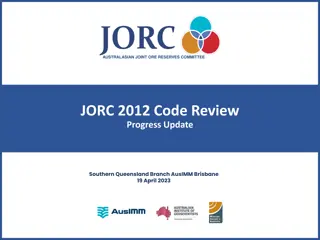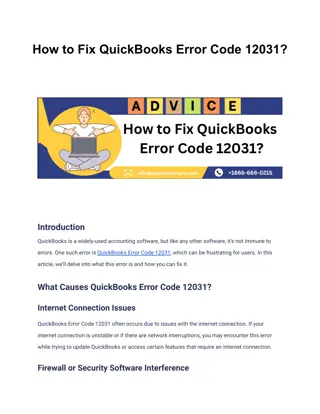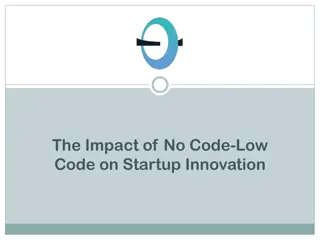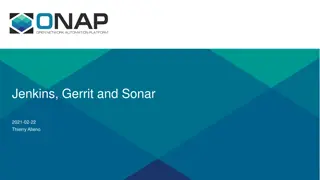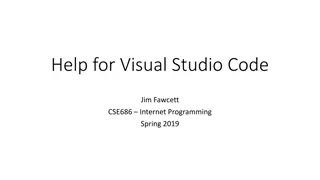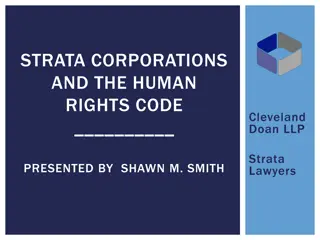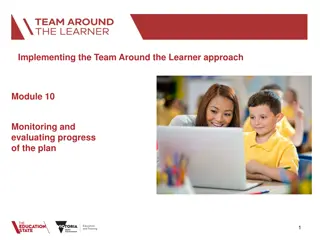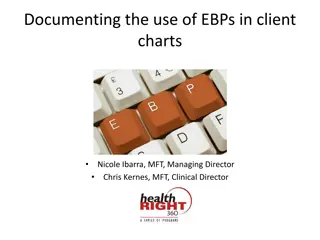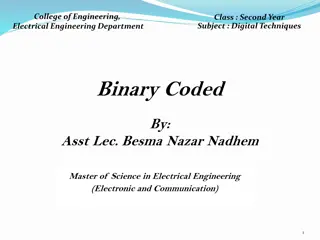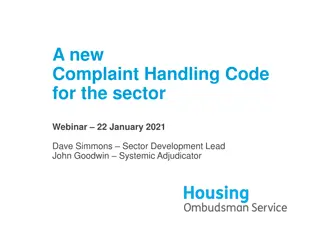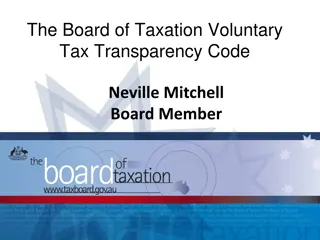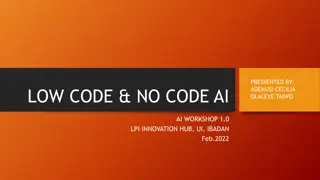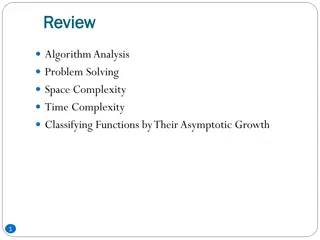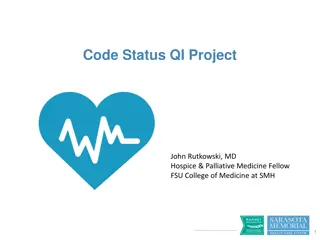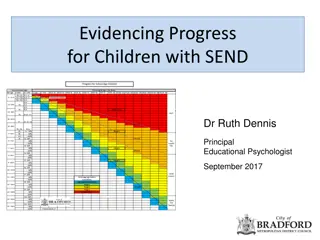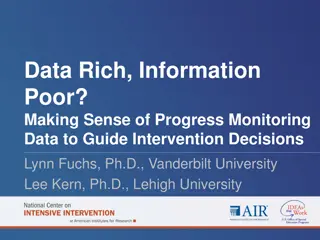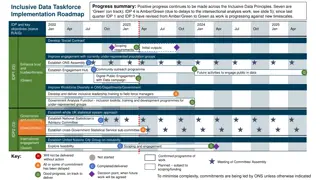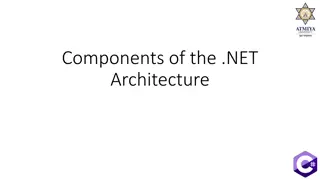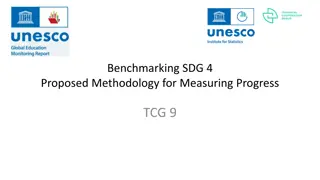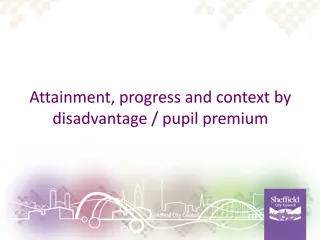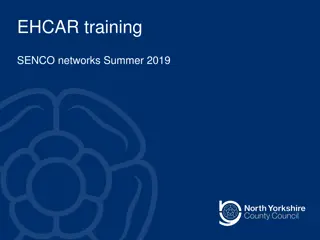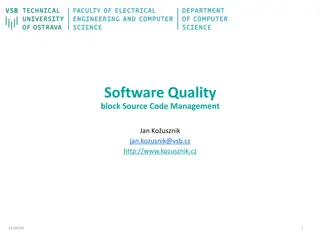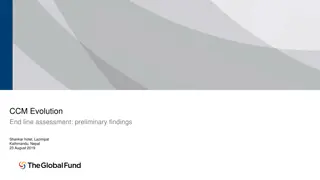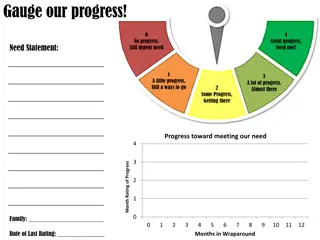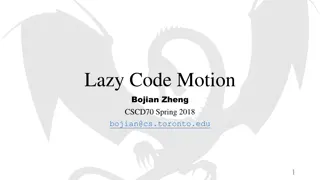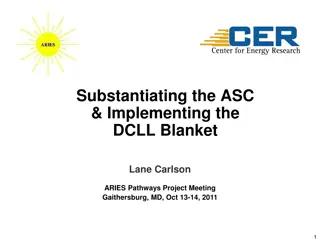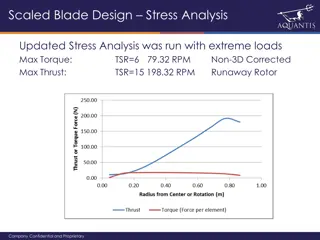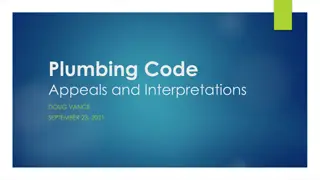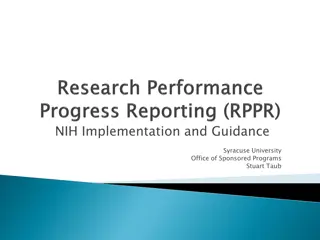Progress on Development of Code of Conduct for Special Advisers Presentation
Presentation to the Select Committee outlines the overview, dispensation vs OECD standards, elements of the code of conduct, and the draft code emphasizing adherence to the Constitution, ethical conduct, and official duties for Special Advisers in South Africa. It focuses on promoting a capable and
1 views • 10 slides
Government Printing Works Ministerial Review Panel Progress Report Presentation
This presentation outlines the progress report on the Government Printing Works' implementation of the Ministerial Review Panel recommendations to the Portfolio Committee on Home Affairs. It covers the background of the incident in February 2021, challenges identified, overall progress, progress per
0 views • 49 slides
Academic Progress Monitoring for Effective Instructional Planning
Academic progress monitoring involves measuring student performance to evaluate responsiveness to interventions, guide instructional decisions, and determine when adjustments are necessary. It helps identify students needing additional support, compare instructional effectiveness, decide on changes,
2 views • 44 slides
Review of Australasian Joint Ore Reserves Committee (JORC) Code 2012 Progress in Southern Queensland
Australasian Joint Ore Reserves Committee (JORC) was established in 1971 and is sponsored by the mining industry and professional organizations. It works closely with CRIRSCO on mineral reserve reporting standards. JORC members include representatives from industry bodies and observers. The JORC Cod
0 views • 23 slides
Behavior Progress Monitoring for Individualized Instructional Planning
Utilizing behavior progress monitoring allows educators to track student performance over time, make data-informed decisions to improve responsiveness to interventions, and tailor instructional plans for individual students. This comprehensive approach involves steps such as setting the stage, analy
6 views • 52 slides
Understanding Non-Weighted Codes and Excess-3 Code in Binary Systems
Explore non-weighted binary codes like Excess-3 code, learn how to convert decimal numbers to XS-3 code, advantages and disadvantages of BCD codes, and steps to convert Excess-3 code to binary. Discover the intricacies of binary coding systems with practical examples.
5 views • 55 slides
How to Fix QuickBooks Error Code 12031?
How to Fix QuickBooks Error Code 12031?\nQuickBooks Error Code 12031 disrupts operations due to internet connection issues or firewall settings. Troubleshoot by checking your internet connection, updating QuickBooks, configuring firewall settings, and adjusting Internet Explorer settings. Utilize Qu
0 views • 6 slides
The Impact of No Code-Low Code on Startup Innovation
In the vibrant world of startups, innovation is the cornerstone of success. As these businesses aim to carve out their niches, they often face a common hurdle: the extensive resources required for traditional software development. However, the emergence of low code no code (LCNC) platforms is revolu
2 views • 12 slides
Improving Code Analysis Workflow with Jenkins, Sonar, and Gerrit
Enhance code analysis processes by analyzing source code before merging, enabling analysis in branches, and triggering Jenkins jobs. Sonar.cloud provides options to analyze branches using Maven build, while the proposal suggests using Jenkins plugin for code review. Addressing challenges with Gerrit
1 views • 12 slides
Getting Started with Visual Studio Code for Web Development
Visual Studio Code (VS Code) is a versatile text editor built with Electron.js that is ideal for developing static web pages and working on Asp.Net Core projects. Learn how to set up and use VS Code for building static web pages by following simple steps like downloading the latest version, organizi
4 views • 10 slides
Understanding Strata Corporations and the Human Rights Code
The Human Rights Code aims to prevent discrimination, promote equality, and provide redress for those discriminated against. It prevails over other legislation, including the Strata Property Act. Strata corporations are subject to various provisions of the Code, impacting areas such as publications,
0 views • 93 slides
Code of Professional Conduct and Ethics in Architectural Profession
The Code of Professional Conduct and Ethics in the architectural profession sets forth standards of honesty, integrity, and ethical behavior expected from registered architects. It outlines guidelines for professional conduct, practices, and ethics, emphasizing the need for transparency, disclosure
1 views • 29 slides
Team Around the Learner Approach: Monitoring Progress Module
This module focuses on monitoring and evaluating the progress of the learner's plan in the Team Around the Learner approach. It covers conducting progress review meetings, assessing progress against the plan, making necessary changes, and maintaining relationships and stakeholder buy-in. The phase i
0 views • 11 slides
Effective Documentation of Evidence-Based Practices in Client Charts
Proper documentation in client charts is vital for tracking treatment progress and ensuring quality care. The Golden Thread method helps connect assessment, diagnosis, treatment plans, and progress notes, creating a cohesive treatment story. Progress notes should detail session topics, client progre
0 views • 14 slides
Understanding Binary Coded Decimal (BCD) and Excess-3 Code
Binary Coded Decimal (BCD) is a binary code used to represent decimal numbers, with the popular 8421 BCD code and its conversion process explained. Additionally, Excess-3 Code, another BCD code, is detailed with an example of finding its code for a given decimal number. Different BCD codes like 4221
0 views • 11 slides
A New Complaint Handling Code for the Sector - Webinar Highlights
This webinar discusses the introduction of a new Complaint Handling Code for the sector, aiming to address issues in social housing complaint processes. It covers key points, the background leading to the code's development, the Ombudsman's experience, and the code's aims and framework towards high-
0 views • 14 slides
The Board of Taxation Voluntary Tax Transparency Code Overview
The Board of Taxation developed a voluntary Tax Transparency Code to address community concerns and promote greater tax transparency among large businesses. The Code outlines recommended disclosures for both large and medium businesses, encouraging adoption of higher disclosure standards. Internatio
0 views • 20 slides
Simplifying AI Development with Low-Code and No-Code Platforms
Explore the world of low-code and no-code AI development platforms, empowering experts to create applications with ease. Learn about the benefits, tools, and components of these innovative platforms, and discover popular AI tools for no-code development. Accelerate your digital transformation journe
0 views • 11 slides
Understanding Pseudo Code and Flow Charts for Algorithm Analysis
Explore the concepts of pseudo code and flow charts for analyzing algorithms, problem-solving, and understanding space and time complexity. Learn about basic elements of pseudo code, assigning operations, and writing effective pseudo code statements in a clear and structured manner. Discover the imp
0 views • 26 slides
Enhancing Code Status Discussions in End-of-Life Care: A Quality Improvement Project
This project led by Dr. John Rutkowski aims to reduce inappropriate interventions for patients with DNR or Modified Code Status by implementing an improved code status documentation system. Data analysis reveals a need for better documentation practices, and survey responses highlight various challe
0 views • 18 slides
Infrastructure Project Progress and Challenges in 2017
The progress report for the year 2017 shows a total payout of $865,272,187.73 with 5,201 progress payments made, marking a significant increase from the previous year. However, the overall progress since 2014 indicates a decreasing trend in awarded and finalized projects. Challenges include delays i
0 views • 11 slides
Supporting Children with SEND: Evidencing Progress and Planning Strategies
Explore strategies for assessing and evidencing progress in children with SEND, presented by Dr. Ruth Dennis. Topics include the importance of progress grids, identifying additional needs, target setting, and planning for progress. Learn how to utilize progress grids effectively to support children
0 views • 28 slides
Making Sense of Progress Monitoring Data for Intervention Decisions
This resource delves into the importance of utilizing progress monitoring data to guide intervention decisions for students with intensive needs in behavior and academics. It covers common progress monitoring measures, key considerations for data collection, and structured questioning for analyzing
0 views • 41 slides
Progress Summary of Inclusive Data Taskforce Implementation Roadmap
Positive progress continues across the Inclusive Data Principles, with seven objectives on track, and IDP4 experiencing delays in intersectional analysis. Notable progress includes transitioning IDP1 and IDP3 from Amber/Green to Green, reflecting advancements against revised timelines set. Key objec
0 views • 5 slides
Understanding the .NET Architecture Components
The .NET architecture comprises various key components such as the Common Language Specification, Code Manager, Managed Code, Unmanaged Code, and Native Code. These components play crucial roles in the development and execution of applications within the .NET framework. Managed code is executed by t
0 views • 21 slides
Proposed Methodology for Benchmarking SDG 4 Progress and Categorizing Recent Progress
The proposed methodology outlines how to benchmark progress on SDG 4 indicators and categorize recent progress based on historical rates. It includes methods for measuring progress, such as benchmarking recent progress against historical rates and identifying the rate of progress needed to achieve n
0 views • 5 slides
Challenges in Code Search: Understanding, Matching, and Retrieval
Programming can be challenging due to the lack of experience and unfamiliar libraries. Code search engines struggle with representing complex tasks, while information retrieval techniques aim to bridge the gap between source code and natural language queries. The mismatch between high-level intent a
0 views • 21 slides
Improving Attainment and Progress of Disadvantaged Pupils in Sheffield
Attainment and progress of disadvantaged pupils in Sheffield show an improving trend across key stages, although the gaps between disadvantaged and non-disadvantaged students are not closing fast enough. Data suggests that disadvantaged pupils with low prior attainment are making better progress in
0 views • 29 slides
Understanding SEN Support and Code of Practice for EHCAR Assessments
The Code of Practice provides guidance for schools in identifying Special Educational Needs (SEN) and determining the appropriate support necessary. It emphasizes the importance of regular progress assessments, quality teaching interventions, and collaboration between teachers and SENCO to address S
0 views • 20 slides
Software Quality and Source Code Management Best Practices
Effective source code management is crucial for software quality assurance. This involves locking down code, baselining milestones, managing code variants, and ensuring traceability. Software Configuration Management (SCM) is key, encompassing configuration items and core concepts like creating base
0 views • 34 slides
Multi-Label Code Smell Detection with Hybrid Model based on Deep Learning
Code smells indicate code quality problems and the need for refactoring. This paper introduces a hybrid model for multi-label code smell detection using deep learning, achieving better results on Java projects from Github. The model extracts multi-level code representation and applies deep learning
0 views • 10 slides
CCM Evolution End Line Assessment: Understanding Progress and Prioritization
The CCM Evolution End Line Assessment focuses on evaluating project progress against baseline indicators and identifying factors hindering or contributing to progress. Key findings and upcoming activities for September to December 2019 are discussed, emphasizing the importance of comparing progress
0 views • 30 slides
Overview of CAIN Particle Tracking Code for High-Energy Colliders
CAIN is a particle tracking code used for high-energy collider simulations since 1984. Initially named ABEL, it evolved to include beam-laser interactions for gamma-gamma colliders. The code, written in FORTRAN 90, handles beam-beam and external fields, with a structure where all particles are store
0 views • 17 slides
Family Progress Assessment Tools
Family Progress Assessment Tools for tracking progress towards meeting needs, fulfilling promises, and realizing family vision. Various gauges and rating scales are used to evaluate progress and determine how close the family is to achieving their goals.
0 views • 12 slides
Lazy Code Motion and Partial Redundancy Elimination in Optimizing Compiler
Lazy code motion, partial redundancy elimination, common subexpression elimination, and loop invariant code motion are optimization techniques used in compilers to improve code efficiency by eliminating redundant computations and moving code blocks to optimize performance. These techniques aim to de
0 views • 35 slides
Pathways Project Meeting Summary - ARIES Design Progress and Power Balance Corrections
The ASC Progress involves improving code for credibility and transparency while adding DCLL functionality. ARIES Design Nomenclature outlines ACT systems and SCLL/DCLL characteristics. Action Items progress includes completion of DCLL system code model and ongoing radial build coding. Power flow dia
0 views • 17 slides
Scaled Blade Design and Rotor Progress Updates
This series of images showcases the stress analysis, extreme loads testing, loft and tooling progress, and hub design updates for a scaled blade design project. The stress analysis includes considerations for torque, thrust, and safety factors, with images detailing the results and adjustments made.
0 views • 6 slides
Unleash the Power of JavaScript Slot Machine Code for Your Online Casino (1)
Learn how to create captivating online slot machines with JavaScript Slot Machine Code, Casino game code, Casino game HTML code, HTML5 casino games source code, Slot machine JavaScript for your platform.\n\nKnow more>>\/\/ \/javascript-slot-machine-c
0 views • 4 slides
Plumbing Code Appeals and Interpretations Overview
This document provides information on the agenda, upcoming professional development events, Building Code Appeal Board, Appeal Board decisions, Code Interpretation Committee, code interpretations, and final thoughts related to plumbing code appeals and interpretations. It covers the appeal process,
0 views • 8 slides
Streamlining Research Progress Reporting for NIH Awards
Research Performance Progress Report (RPPR) is a standardized mechanism to facilitate interim progress reporting for NIH-funded projects, aiming to enhance consistency and minimize administrative burdens. It replaces the eSNAP process for certain types of awards and fellowship grants. RPPR includes
0 views • 12 slides



